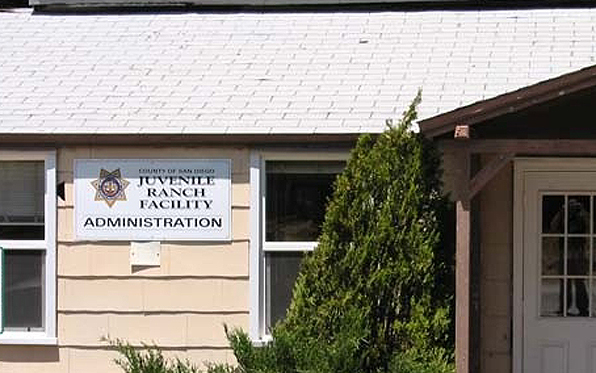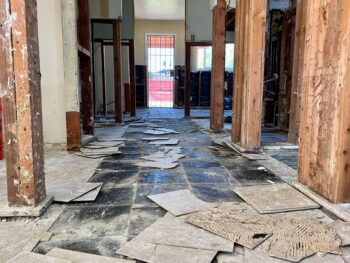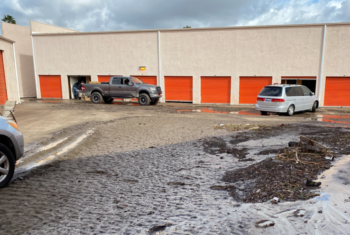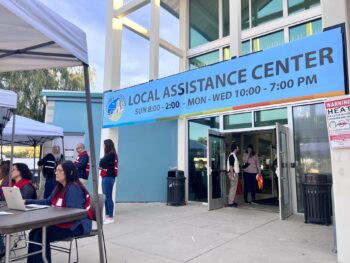Plunging juvenile populations are prompting San Diego County Probation to consolidate operations of its two camps for young people: Juvenile Ranch Facility in Campo and Camp Barrett youth facility in rural Alpine. Both camps house male youths.
Probation Chief Mack Jenkins says the drop in juveniles in custody is the result of a number of factors including a significant investment in prevention and diversion programs as well as improved outcomes among youth who have been placed on probation. As a result of these declines, which have been seen across the country, “we’ve determined that we don’t need both camp locations anymore,” Jenkins said. “In an effort to be efficient and cost-effective, consolidation of the two facilities can better provide joint rehabilitation services for both populations.”
Probation’s Juvenile Ranch Facility (JRF) currently houses about 45 males ranging in age from 13 to 17 years old. Those youth will relocate to Camp Barrett, about 34 miles from downtown San Diego, said Probation Division Chief Chrystal Sweet, who is in charge of both facilities. The consolidation is expected to be completed by early August. Once complete, Camp Barrett will house approximately 100 male youth, said Sweet. Staff assigned to work at JRF will also shift to Camp Barrett.
Both facilities have seen sharp declines in their juvenile populations in recent years. In 2009, Camp Barrett housed an average of 149 youth per day, but by 2014, that number dropped to 73, and in recent months, to 65. JRF, meanwhile, housed an average of 136 youth a day in 2009, but by 2014, that number had fallen to 82 youth a day. In recent months, JRF has been home to an average of 45 youth a day.
Probation determined that the Camp Barrett site made more sense to keep operational because of its closer location to medical and other services in San Diego and facility improvement work needed in the future at the Juvenile Ranch Facility, which has buildings that were part of the historic Camp Lockett. In the coming months, the County will explore alternative uses for the JRF site, but whatever future use is determined will take into consideration the historic value of the property as well as its importance to the community.
The camp programs offer long-term rehabilitative services, such as drug, alcohol, anger, individual and group counseling for the youth in a focused, highly structured setting. At both residential facilities, male teens who are wards of the court also participate in school, life skills and vocational classes. Some are also assigned to public service work crews.
Previously, Camp Barrett and JRF have offered some slightly different programming. Now, all programming will be combined at the single location, allowing the youth a broader range of services, Sweet said.
“Over time our goal is to provide not only a broader range, but to keep increasing the level of services,” Sweet said. “We are constantly seeking out the best and most effective offerings at our facilities that will help the youth to improve their lives.”






.jpg)